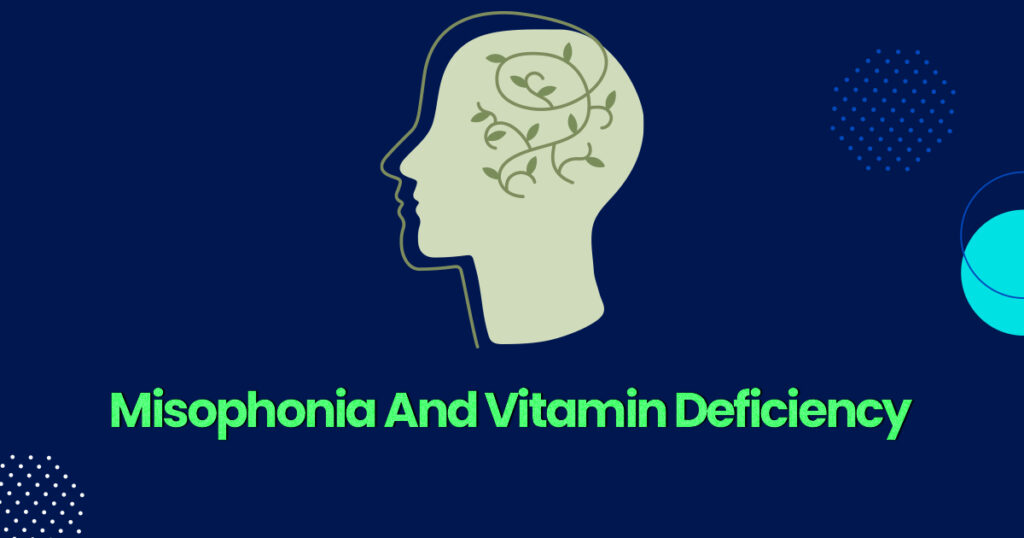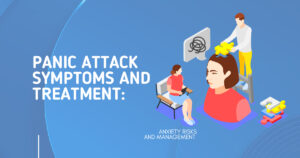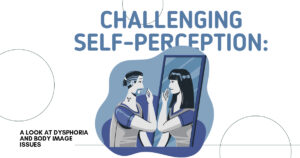Misophonia is when people experience extreme disgust or anger when they hear sounds other humans make. These sounds might include breathing, chewing, or lip-smacking. The condition causes someone to feel anger and even physical symptoms. Some research is coming to light showing a potential link between misophonia and vitamin deficiency, which we explore more below.
What is Misophonia?
It’s fairly typical to experience annoyance with certain sounds from time to time, but misophonia goes well beyond annoyance.
Someone with this condition is emotionally affected by common sounds.
- These sounds can include anything like yawning, breathing, or chewing.
- They’re sounds most people ignore.
- Misophonia means these sounds can trigger a fight-or-flight response or the feeling like you need to escape.
- Along with affecting your quality of life, dealing with this condition can affect your relationships and lead to isolation.
- You may want to avoid being around other people because you don’t want to trigger your symptoms.
- Typically, the condition starts around age 12 and may affect a lot more people than we realize.
- Someone with misophonia may experience physiological stress symptoms, including an increased heart rate and sweating when exposed to trigger sounds.
There is a part of the brain that plays a role in how we integrate outside sounds and also in anger.
- Using fMRI scans to look at brain activity, researchers found that the anterior insular cortex causes more activity in other parts of the brain during exposure to trigger sounds for people with misophonia than a control group.
- The brain areas responsible for fear and other emotions were activated, explaining the strong emotional reactions to everyday sounds.
- People with misophonia may have higher amounts of myelination in their brain too. Myelin is a fatty substance. The substance wraps around nerve cells in the brain, providing insulation. Researchers don’t know if the extra myelin is a cause of misophonia or an effect.
Mental Health Center of San Diego
Misophonia and Vitamin Deficiencies
While we don’t know a lot about the specifics right now, it’s also possible there are links between misophonia and vitamin deficiency. For example, we’re learning about B12 deficiency and mental health, and this could hold some answers to dealing with misophonia.
A deficiency of B12, which may affect many people, can lead to hematological changes and neurological and psychological problems. B12 deficiency is thought to potentially cause nearly any psychiatric symptom, including misophonia.
B12 deficiencies affect psychiatric health because they trigger symptoms in the nervous system and the red blood cells.
When you have low levels of vitamin B12, it can cause aggression, and it may lead to disruptions in how your brain functions because it affects dopamine in the human body.
Iron deficiency can also lead to aggression because it’s concentrated in the dopamine pathways. When you’re iron-deficient, it reduces dopamine transmission, leading to changes in behavior.
B12 Deficiency and Mental Health
B12 anxiety and B12 deficiency anger are more common symptoms people experience than misophonia, but all of these scenarios highlight the role of B12 deficiency in mental health.
Your body needs vitamin B12 to make nerves, DNA, and red blood cells and carry out other essential functions. Your body can’t make B12, so you have to get it from the food you consume or supplements.
- Vegetarians and vegans are especially at risk of a B12 deficiency because plants don’t make the vitamin, so you get it primarily from animal products.
- The only foods with naturally occurring B12 are meat, eggs, dairy products, poultry, and other items that come from animals.
- If you’re a vegan or vegetarian, you’re at risk of B12 deficiency if you don’t supplement or choose grain-based foods fortified with the vitamin.
- People with weight loss surgery or disorders like Crohn’s or celiac can also be at risk for deficiency.
- As people age, their risk of deficiency increases because of the reduced stomach acid that tends to occur. Your body needs stomach acid to absorb the vitamin.
- There are also conditions like pernicious anemia that cause symptoms of vitamin B12 deficiency.
Along with mental health disorders, other potential side effects of a low vitamin B12 level can include:
- Strange sensations or tingling and numbness in the hands, legs, or feet
- Problems walking or balance issues
- Anemia
- A tongue that feels swollen or inflamed
- Problems with thinking and reasoning
- Cognitive impairment
- Slower cognitive function and similar neurological symptoms
- Weakness and fatigue
Health care professionals may not even realize that B12 deficiency and mental health are closely linked. Psychosis and depression can be among the first presenting symptoms of a deficiency.
Mental Health Center of San Diego
Vitamin B12 and Bipolar
There are instances recorded in the medical literature where people are misdiagnosed with bipolar disorder, but they have a B12 deficiency in reality.
You could also have a folic acid deficiency if you’re experiencing symptoms of certain mood disorders. Folic acid and B12 work together, so it’s important that you talk to your doctor about your blood levels of both if you’re experiencing symptoms you think could be related.
Other Ways Vitamins Affect Mental Health
Other vitamin and nutrient deficiencies can affect your mental health or mimic psychiatric disorders.
To have optimal mental health, you need to consume and absorb the right vitamins, minerals, and amino and fatty acids. These are necessary for our brain cells and neurotransmitters. When your nutrition isn’t balanced, your mental health can be affected.
- Vitamin D levels, for example, play a role in mood regulation, sleep, and the synthesis of neurons. The vitamin regulates the genes that make serotonin and oxytocin feel-good brain chemicals. Vitamin D deficiency symptoms can include irritability, symptoms of depression, anxiety disorders, and fatigue.
- Vitamin B6 concentrations are around 100 times higher in the brain than the rest of the body. B6 helps your body keep homocysteine levels in balance, which helps mood.
- Folate deficiency is being studied for its associations with depressive symptoms. There’s some evidence folate supplementation could be a treatment for depressive disorder, but more research is needed.
- Magnesium helps regulate your stress response and is sometimes known to reduce mood swings and stabilize emotions naturally.
- Zinc is a trace mineral that helps your body make serotonin and dopamine.
- Omega-3 fatty acids have DHA and EPA, which help your brain function properly. These fatty acids help your brain combat inflammation and improve cellular communication. Symptoms of deficiency of omega-3s can include problems with mood and fatigue, chronic thirst, and dry skin.
Mental Health Center of San Diego
How Do You Know If You Have a Deficiency?
It’s important to point out that while there are potential links between misophonia and vitamin deficiency, B12 deficiency and mental health, and other deficiencies and psychiatric symptoms, your symptoms may not be related to a deficiency.
Rather than trying to self-diagnose or take vitamin supplements you might not need, you should talk to a doctor. Your doctor can do blood tests to determine if you are truly deficient in any vitamins or nutrients to come up with a plan.
If you aren’t deficient in anything, you should talk to a mental health professional about your symptoms. That’s why doctors will do so many tests if you have a mental health complaint in many cases—they want to rule out other possible causes of your symptoms before referring you to a therapist or psychiatrist.
If you’d like to learn more about mental health treatment, please contact the Mental Health Center of San Diego team today by calling (858) 258-9883.









